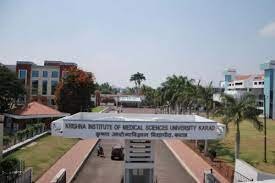Eligibility Criteria and Fee Structure for Diploma Sound Engineering
Sound Engineering is a specialized field that focuses on recording, mixing, and producing audio for various mediums, including music, film, television, and live events. Pursuing a Diploma in Sound Engineering can open up exciting career opportunities in the music and entertainment industry. In this article, we will explore the eligibility criteria and fee structure for this diploma program.
Diploma In Sound Engineering Eligibility Criteria
The eligibility criteria for admission to a Diploma in Sound Engineering program may vary from one institution to another. However, there are certain common prerequisites that aspiring students should generally meet. Here are the key eligibility criteria:
1. Educational Qualifications: Candidates should have completed their 10+2 or equivalent examination from a recognized board or educational institution. A strong foundation in physics, mathematics, and music or audio-related subjects can be beneficial.
2. Minimum Marks: Some institutions may have a minimum marks requirement in the 10+2 examination. The specific requirements can vary, but having a good academic record is generally recommended.
3. Age Limit: In most cases, there is no specific age limit for pursuing a Diploma in Sound Engineering. However, it's essential to verify with the specific institution you are interested in, as some institutes may have age restrictions.
4. Entrance Examinations: While not all institutions require entrance examinations, some may conduct them to assess the aptitude and knowledge of applicants. Students may need to qualify in these exams to secure admission.
5. Language Proficiency: Proficiency in the language of instruction (usually English) is crucial, as coursework and study materials are often in this language. Some institutions may require candidates to clear English proficiency tests like IELTS or TOEFL.
6. Specific Requirements: Depending on the institution, there may be additional requirements or preferences, such as a portfolio of audio work, prior coursework in music or audio-related subjects, or an audition or interview.
Prospective students should carefully review the eligibility criteria of the institution they wish to apply to, as these requirements can vary.
Diploma In Sound Engineering Fee Structure
The fee structure for a Diploma in Sound Engineering can vary widely based on several factors, including the institution, location, country, and program duration. Here's a general overview of what to expect:
1. Tuition Fees: Tuition fees are a significant component of the overall cost of the diploma program. These fees can vary considerably, with government-funded institutions often offering lower tuition fees for residents, while international students typically pay higher fees. Tuition fees can range from a few hundred dollars to several thousand dollars per semester or year.
2. Additional Fees: In addition to tuition fees, students may need to pay various additional fees, such as registration fees, equipment fees, laboratory fees, and examination fees. The specific fees and their amounts can vary depending on the institution's policies.
3. Cost of Equipment and Software: Sound Engineering programs often require students to use specialized equipment and software for recording and mixing. Students may need to budget for the cost of obtaining or licensing these tools.
4. Books and Study Materials: The cost of textbooks, reference materials, and software licenses is another expense to consider. Some institutions may provide these materials as part of the tuition fees, while others may require students to purchase them separately.
5. Studio Time: Some programs offer access to professional recording studios as part of the curriculum. Depending on the program, students may need to pay for additional studio time beyond what's included in their tuition.
6. Extracurricular Activities: Participation in extracurricular activities, music productions, or live events may have associated costs, although these are typically optional.
 1 Years
1 Years
 Diploma
Diploma
 Engineering
Engineering






 back
back

